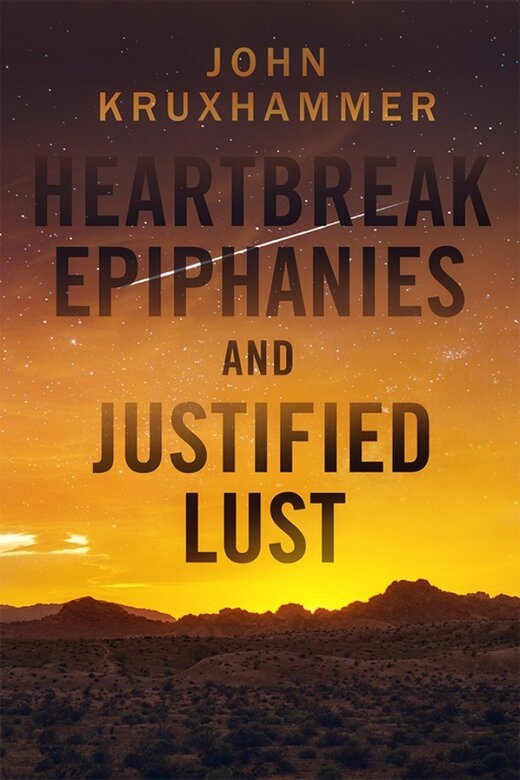A swirling, language-bending journey through philosophy, psychology, and the bottom of a bottle, Heartbreak Epiphanies and Justified Lust by John Kruxhammer is a character-driven diatribe on love and purpose.
John Palmer is an angry young man with a bent towards nihilism, and a serious grudge against his father. He is also a sometimes student of philosophy under Leonard Wilson, a formerly disgraced academic starting his life over in California. John’s decidedly unprofessional therapist, Diana, is a “rain shower in a scorching desert,” but his obsession with her may drive him down a dark path, without any healing waiting at the end of it. His inner turmoil is deep-seated and constant, as are his relentless desires; his high-brow manner of speaking and articulation of his thoughts is charming and eccentric, but readers have insight to the unspoken desperation in his mind.
John Morgan is another troubled soul briefly under the tutelage of that same discredited professor on the East Coast. Tired of being penned up in Buffalo, he flees across the country to Las Vegas with his compatriot Raul beside him, bringing up serious Fear and Loathing vibes, both in behavior and writing style. Stumbling through a perpetually unmoored life, Morgan bounces between card-counting and songwriting to working at a gas station, then back to Buffalo where he marries into a slippery slope of unhappiness with a wife who doesn’t love him. His up-and-down journey is brutal, in many ways, but like a vortex of hedonism and bad decisions, Las Vegas eventually draws him back from the basement bunker.
Watching the two narratives of these men spiral around each other, there is a constant sense of a pending collision, likely in spectacularly sybaritic or literary fashion. The prose occasionally veers into the realm of character delusions and snippets of mental storytelling, which can blur the edges of the book’s sense of reality. Kruxhammer plays with language in unusual ways, slipping into odd rhyming patterns and vocabulary shuffles, experimenting with form and content delivery, giving this tale a subtle metaphysical feel.
Some female readers may feel their hackles rise upon reading, as Kruxhammer’s characters are primarily male with a decidedly lustful gaze, and female characters often lack any description or depth aside from how well they fill out a sweater. John’s attitude, behavior, and resentment of the very unavailable woman he “loves” are disturbing, which gives readers a gritty glimpse inside a mind broken by heartache, the victim of “maniacal fascination,” but sometimes he seems something of a mouthpiece, rather than an exposé.
From a technical view, there are some issues with grammatical errors, incorrectly used words, and unpolished or unedited prose, whereas other sections are meticulously groomed for flow and language. There is also some repetition in themes and scenes, where the plot seems to stall, but then years will pass in a single paragraph, making it hard to keep hold of the temporal line of the book. That may be the author’s intention, as it can create a disconnected, abstract, or even surreal mood, reflecting the characters’ inner torment, but the narrative can also feel imbalanced.
Overall, this twisted tale about men being pushed to their breaking points, and the emotional carnage they leave in their wake, is a wild and challenging read that speaks to the growing frustrations in the modern generation.
Book Links
STAR RATING
Design
Content
Editing
Get an Editorial Review | Get Amazon Sales & Reviews | Get Edited | Get Beta Readers | Enter the SPR Book Awards | Other Marketing Services























Leave A Comment